Discover Swisspreneur Show
Swisspreneur Show

Swisspreneur Show
Author: Swisspreneur
Subscribed: 83Played: 7,935Subscribe
Share
© 423975
Description
The Swisspreneur Show is a podcast series of in-depth, candid conversations with some of Switzerland’s most successful founders, business leaders and innovators. By getting to the heart of these leaders’ stories - their successes, their failures, their must-have advice and greatest regrets - we hope to both inspire and guide the next generation of Swiss entrepreneurs. Each episode deconstructs and showcases one person’s personal and professional background and provides advice and recommendations for existing and aspiring entrepreneurs in Switzerland.
543 Episodes
Reverse
Timestamps:9:03 - Challenges in AI and Robotics17:55 - Mimics core customer segment23:00 - The role of the ETH network25:46 - The future vision for MimicEpisode description:Stefan Weirich is the Co-Founder and CEO of Mimic, a deep tech startup building foundation AI models for robotic manipulation that enables robots to react, self-correct, and handle real-world variability beyond hard-coded trajectories. With a background spanning mechanical engineering, robotics R&D, and the startup ecosystem.In this episode, we dive into founder-relevant themes at the heart of the Swiss innovation ecosystem: how ETH research de-risks deep tech, why data is the bottleneck in physical AI, and what it takes to build a company in robotics with real-world deployment constraints. Stefan also shares what’s changing in Zurich and how a rapidly maturing founder community with “San Francisco vibes.”Beyond the technical story, Stefan goes deeper into the hard trade-offs: choosing specialization over “generalist” hype, building a go-to-market focus in manufacturing and logistics, and the operational reality that execution speed in hardware is limited by logistics, resources, and scaling talent. He also reflects on what Switzerland still needs to produce more global deep tech winners.The cover portrait was edited bywww.smartportrait.io.Don’t forget to give us a follow on Instagram, Linkedin, TikTok, and Youtube so you can always stay up to date with our latest initiatives. That way, there’s no excuse for missing out on live shows, weekly giveaways or founders' dinners.
Timestamps:11:09 - Use-cases for BTRYs technology 15:57 - Challenges in scaling production20:43 - The Swiss startup ecossystem23:11 - Advice for aspiring entrepreneursThis episode was co-produced with Swiss Startup Days, the leading Swiss deep-tech catalyst event for startups, investors, enablers, and corporates.Checkout Newcomers - the ultimate pitching format for pre-seed and seed startups in Switzerland. Applications open in December 2025. Episode descriptionIn this episode, we sit down with Moritz Futscher, CEO and Co-Founder of BTRY, a Swiss-based deep tech startup building ultra-thin solid-state batteries. After years in academic research in multiple countries, Moritz transitioned from the lab into entrepreneurship to bring battery technology out of research and into real-world applications. He holds a PhD in Physics from Universiteit van Amsterdam. Moritz shares what it really takes to scale hardware startups in Switzerland, from navigating early incubators and public funding programs to raising capital during a difficult period for battery companies across Europe. We discuss the strengths and gaps of the Swiss startup ecosystem, why early-stage support is strong but scale-up infrastructure remains limited, and how partnerships with European, US, and Asian players are becoming essential for global competitiveness.Mortiz also goes deeper into the realities of deep tech execution: finding the first real customer use cases, choosing scaling partners, managing complex manufacturing processes, and building a high-performance team culture focused on psychological safety, ownership, and empowerment. He also reflects on the personal leap from academia to startup life, balancing family and leadership, and what success really means when building physical technology that aims to enable entirely new applications.The cover portrait was edited bywww.smartportrait.io.Don’t forget to give us a follow on Instagram, Linkedin, TikTok, and Youtube so you can always stay up to date with our latest initiatives. That way, there’s no excuse for missing out on live shows, weekly giveaways or founders' dinners.
Timestamps:7:30 - The problem that led Christian to found derma2go13:27 - Creating a “win-win” hybrid model20:08 - Building a two-sided marketplace30:07 - Raising money with disciplineThis episode is co-produced with Innosuisse, the Swiss Innovation Agency. Innosuisse supports SMEs, startups, research institutions and other Swiss organisations in their research and development activities. They offer a range of programmes to help you bring your innovative ideas to life. To explore their support offerings and find the right offer for your needs, visit their online guide and take the next step in your innovation journey.Episode description:In this episode we speak to Christian Greis, a Dermatologist at University Hospital Zürich and the Founder behind derma2go, a Swiss digital dermatology platform built to help patients get expert skin assessments faster through online photo-based consultations. Christian shares how his path from clinical medicine into entrepreneurship was shaped by real-world demand, and how he built derma2Go while staying close to the medical frontline.Christian speaks about how derma2go creates a win-win through hybrid care - solving 75–80% of cases online and routing the remainder in-house - and what it takes to shift patient behavior from long waiting lists to digital-first care. Christian also breaks down the realities of operating a two-sided platform in healthcare and why the company pivoted toward a B2B2C model by partnering with hospitals and clinics.Christian also goes deeper into his founder journey: the trade-offs of solo founding, why sidepreneurship can be a strategic advantage in regulated markets, and what Christian learned from Innosuisse training and coaching. Finally, he shares a pragmatic view on fundraising and why it’s important to stay lean and raise only what you need.The cover portrait was edited bywww.smartportrait.io.Don’t forget to give us a follow on Instagram, Linkedin, TikTok, and Youtube so you can always stay up to date with our latest initiatives. That way, there’s no excuse for missing out on live shows, weekly giveaways or founders' dinners.
Timestamps:7:06 - What Irmos does16:13 - The information gap that Irmos is solving for22:51 - Why Irmos delayed raising a large financing round31:53 - What’s next for IrmosThis episode was co-produced with KickFund, a VC fund investing in the most promising Swiss deeptech startups.Episode Summary:In this episode we sit down with Panagiotis Martakis, Founder and CEO of Irmos Technologies, a Swiss startup using data-driven monitoring to protect and extend the lifetime of critical infrastructure. Trained as a civil engineer, Panos transitioned from traditional structural engineering into sensing, data, and predictive maintenance through research at ETH Zurich, where the foundations of Irmos were built.Panos shares how his work in the critical infrastructure sector operates in slow-moving, highly regulated markets where trust, references, and execution matter more than speed. Panos shares why Irmos deliberately delayed raising a large funding round, how the Swiss startup ecosystem supports founders at early stages, and why focus is a decisive advantage when resources are limited.Panos goes deeper into the realities of building a hardware and data-driven company: reducing uncertainty in engineering decisions, moving from gut-feeling inspections to measurable risk at portfolio level, and narrowing focus after an initial phase of experimentation. He reflects on fundraising timing, working with public-sector clients, learning from Founder networks, and the long-term vision of turning infrastructure monitoring into a scalable, data-powered standard.The cover portrait was edited by www.smartportrait.io.Don’t forget to give us a follow on Instagram, Linkedin, TikTok, and Youtube so you can always stay up to date with our latest initiatives. That way, there’s no excuse for missing out on live shows, weekly giveaways or founders' dinners.
Timestamps:10:01 - What RTDT does21:03 - Creating a team and spinning-off from ETH26:19 - Getting financing for Hardware 32:08 - The One-Customer ruleEpisode summary:In this episode, we sit down with Imad Abdallah, Co-Founder & CEO of RTDT, a spin-off from ETH Zurich developing one of the world’s first systems to measure real aerodynamic behavior directly on wind turbine blades. After studying engineering in Canada and Denmark, Imad moved to Switzerland for a postdoc at ETH where the core technology behind RTDT was born.Imad shares what it really takes to build a hardware company in Switzerland: turning a research prototype into a manufacturable product, navigating regulation, and validating a solution for an industry where no benchmark data exists. Imad also shares how early programs like Venture Kick and Innosuisse helped sharpen their pitch - shifting from “technology that can do everything” to a clear value proposition for one specific market. He explains why the wind industry is concentrated, hard to access, but ultimately ideal for focused, high-impact innovation.Imad offers an honest look behind the scenes of hardware entrepreneurship: spending months rewriting firmware, installing patches himself in the rain on 100-meter blades, and learning the importance of one customer, one use case, one application in the early days. He reflects on fundraising challenges founders face when developing hardware, the value of choosing partners who understand manufacturing, and the long-term vision of making RTDT the reference in deploying an interface between aerodynamic data and turbine control systems.This episode was sponsored by infinity.swiss, Switzerland’s most advanced AI accounting tool. Save 25% by entering code SWISSPRENEUR at checkout.The cover portrait was edited by www.smartportrait.io.Don’t forget to give us a follow on Instagram, Linkedin, TikTok, and Youtube so you can always stay up to date with our latest initiatives. That way, there’s no excuse for missing out on live shows, weekly giveaways or founders' dinners.
Timestamps:11:36 - Learning from users and iterating the product19:22 - Saying no to misaligned revenue and long-term thinking25:05 - The hard moments (tough calls and running out of money)40:10 - Life after the exit and letting goEpisode Summary:Marco Cerqui is the co-founder and former CEO of Bring! - Switzerland's most widely used shared grocery shopping app. With a background in software engineering and product management, Marco and his co-founder Sandro built Bring! from a side project into a platform used across millions of households before being acquired by Swiss Post in 2021.In this episode, Marco shares how Bring grew from a simple shared shopping list into a category-defining product with a loyal user base. He talks about early product validation, user-centric design, scaling a B2C company from Switzerland, and why simplicity beats feature expansion. Marco also explains how Bring shifted from a paid app to a highly contextual advertising model - without compromising the user experience.Marco also opens up to the emotional and strategic milestone of exiting to Swiss Post, navigating setbacks along the way, and why stepping down as CEO was one of Marco’s proudest leadership moments. This is a candid, practical masterclass in long-term product thinking, timing, and resilience.The cover portrait was edited by www.smartportrait.io.Don’t forget to give us a follow on Instagram, Linkedin, TikTok, and Youtube so you can always stay up to date with our latest initiatives. That way, there’s no excuse for missing out on live shows, weekly giveaways or founders' dinners.
Timestamps:7:30 - Impact vs profit maximizing19:48 - The price of saying no to investors and customers25:17 - How bootstrapping vs VC funding impact speed and focus30:54 - Defining success: short global impact story vs sustainable and long-term growth This episode was produced by Founders Hive, a community of successful startup founders, industry experts, and investors promoting entrepreneurship in Switzerland and helping early-stage business concepts get ready for seed-stage investment.Founders Hive is a partner of the Entrepreneurship Training programme, empowered by Innosuisse, the Swiss innovation agency supporting SMEs, startups, research institutions and other Swiss organizations in their research and development activities. Click here to find out more about Founders Hive, empowered by Innosuisse.Episode summary:In this Opposing Views episode, we welcome David Eberle (INSEAD MBA), Co-Founder and CEO of Typewise, a YC-backed AI startup building autonomous customer service agents, and Florian Emaury (ETH PhD), Co-Founder and CEO of Menhir Photonics, a fully bootstrapped Swiss deep-tech company producing some of the most precise lasers in the world.Together with Silvan, they unpack one of the most debated questions in the startup world: should you optimize for impact or profit? They explore how funding strategy shapes decisions, why margins (not industry) determine whether bootstrapping is viable, and how shifting from B2C keyboard app to B2B enterprise AI changed Typewise’s trajectory. They also discuss pricing discipline, ethical boundaries, pivots, and how Swiss founders approach growth compared to U.S. startup culture.They also open up about navigating ethical red flags with investors, resisting tempting short-term revenue, and balancing ambition with a life worth living. Both founders reflect on what success means beyond valuations: sustainability, joy, quality, risk-taking, and building something that lasts. Whether you're building a deep-tech hardware company or scaling AI software, this episode challenges how you define success and what you're willing to trade for it.The cover portrait was edited by www.smartportrait.io.Don’t forget to give us a follow on Instagram, Linkedin, TikTok, and Youtube so you can always stay up to date with our latest initiatives. That way, there’s no excuse for missing out on live shows, weekly giveaways or founders' dinners.
Timestamps:3:05 - From burning out from the 9-5 to becoming an entrepreneur8:33 - Scaling properti to an industry leader in 5 years14:00 - How Levent’s role shifted throughout properti’s growth22:11 - What’s next for propertiThis episode was sponsored by infinity.swiss, Switzerland’s most advanced AI accounting tool. Save 25% by entering code SWISSPRENEUR at checkout.Episode Summary:In our second Swisspreneur Documentary series we sit down with Levent Künzi, Co-Founder and CEO of properti, to explore his journey from burnout to building one of Switzerland’s fastest-growing proptech companies. What started as a frustration with outdated industry norms became a mission to simplify real estate, automate transactions, and create a platform-driven brokerage model built around efficiency and customer experience.Throughout the episode, Levent opens up about the reality of scaling: How the solution isn’t necessarily increasing headcount, why you should hire slow (with a big focus on cultural fit and decide fast if they’re a match or not), and leveraging automations in the age of AI. He shares how properti reinvested early revenue, built a clear playbook, and shifted from a transaction focus to creating a full on platform to support every need. We also dive into the mindset evolution behind going from founder-operator to scale-up CEO. Levent reflects on identity and personal sustainability: moving from hustle mode to strategic leadership, why scaling the company required him to first scale himself, and how he surrounds himself with the right board members and investors to help him through struggles and challenging decisions.Whether you're bootstrapping, fundraising, or transitioning into scale-mode, Levent’s story offers grounded lessons, tactical frameworks, and radical honesty about what it takes to build a category-defining company in Switzerland (and beyond).This video was produced by: DANGVIDEOSCover portrait by smartportrait.Don’t forget to give us a follow on Instagram, Linkedin, TikTok, and Youtube so you can always stay up to date with our latest initiatives. That way, there’s no excuse for missing out on live shows, weekly giveaways or founders' dinners.
Timestamps:2:23 - The story behind Google Clouds Founder Story8:45 - Uber’s pre-IPO hypergrowth25:19 - Is Switzerland Good at Adopting AI? 44:29 - How Swiss founders can expand into the USThis episode was sponsored by Google Cloud. Join their The Founder's Story event on December 4th to hear an exclusive panel discussion with visionary leaders sharing what it takes to go from building companies to funding them. Episode Summary:In this episode, Google Cloud leaders Hans Tran, Industry Lead for Digital Native Startups, and Chris Craig, ISV Partner Manager, share their insights from working with founders across Switzerland and globally. Hans is the creator of Google Cloud’s Founder Stories series and holds a Masters in Digital Marketing Strategy from Trinity College Dublin. Chris brings operational and scaling experience from his years at Uber during its pre-IPO hyper-growth phase and holds an MBA from HSG.They discuss the current state of the Swiss startup ecosystem, from founder mindset and scaling patterns to the evolving fundraising climate. The conversation explores how Switzerland compares to major innovation hubs and what unique advantages founders can leverage: including deep tech talent, AI readiness, and a rapidly maturing support system.The discussion also goes deep on cultural dynamics and how Swiss founders need to move faster, take risks earlier, and embrace iteration over perfection. Chris shares raw lessons from building at Uber, why focus determines survival, and why you need to stand for your ideas. Hans reflects on how community-driven founders are changing how startups launch, test, and scale in Switzerland. The cover portrait was edited by www.smartportrait.io.Don’t forget to give us a follow on Instagram, Linkedin, TikTok, and Youtube so you can always stay up to date with our latest initiatives. That way, there’s no excuse for missing out on live shows, weekly giveaways or founders' dinners.
Timestamps:4:58 - Diversity in tech: challenges and opportunities6:08 - Recruiting challenges in tech13:00 - Supporting girls in STEMThis episode was sponsored by Google Cloud. Join their Founder's Story event on December 4th to hear an exclusive panel discussion with visionary leaders sharing what it takes to go from building companies to funding them. Link is in the bio! This episode was originally a live conversation recorded at the SEF.Growth Founders Conference back in June 2025.Episode Summary:Beat Knecht is the co-founder and CEO of the TV streaming provider Zattoo, and a general partner at the VC fund REALR. She also founded Genistat and Levuro. Bea holds a BA in Computer Science from the University of California, Berkeley.Carla Bünger is the co-founder of Phoenix Technologies, a tech cluster that drives the AI landscape through its sovereign hyper-secure IT infrastructure (kvant Cloud) and its SaaS solutions in frontier technologies. She also co-founded KORE Technologies Switzerland. Carla holds an MA in International Relations from the Geneva Graduate Institute.Sandra Trittin is the co-founder and CGO of beebop.ai, a power grid orchestration software which unlocks grid flexibility within consumer devices, turning it into a valuable, tradable asset. She also founded Futurize Energy. Sandra holds an MBA from Mannheim Business School.During their chat with Silvan, our 3 guests discussed the current representation of women in tech in the Western world. Women are significantly underrepresented in tech, especially in leadership roles (e.g., only 22% of AI professionals in Switzerland are women). They face career obstacles such as stereotypes, biases, and societal filters that hinder their progress.Diverse teams drive innovation, but the tech industry often overlooks this potential. To improve gender representation, proactive efforts are needed, including:Encouraging risk-taking (critical for startups and leadership).Building support systems (mentorship, peer networks).Fostering STEM environments for girls to ensure future diversity.Addressing unconscious biases in hiring and promotions.Ultimately, empowering women in tech requires systemic change, from education to workplace culture, to unlock their full potential and drive long-term progress.📸 The cover portrait was edited by @smartportrait_io. Don’t forget to give us a follow on Instagram, Linkedin, TikTok, and Youtube so you can always stay up to date with our latest initiatives. That way, there’s no excuse for missing out on live shows, weekly giveaways or founders' dinners.
Timestamps:3:30 - Identifying a market gap in legal tech 10:06 - What is “smart money” after all?16:22 - How do you go from researcher to CEO?25:55 - The biggest risk for every scaleup36:20 - Is Switzerland a hotbed for AI?This episode was co-produced by SICTIC, the leading angel investor network in Switzerland.This episode was sponsored by Relai. Get started with Bitcoin by downloading the Relai app today, and profit from 10% less fees by entering code SWISSPRENEUR at checkout.(Disclaimer: Relai services are exclusively recommended for Swiss and Italian residents.)Click here to order your copy of “Swiss Startups” today.Episode Description:Thomas Dübendorfer is the founder and president of SICTIC, the leading angel investor network in Switzerland. He’s also a cybersecurity expert and serial entrepreneur, holding board seats at Frontify and several other startups. Paulina Grnarova is the co-founder and CEO of DeepJudge, an AI-powered knowledge search for legal professionals. She holds a PhD in Computer Science from ETH, and started her company in 2021, directly after completing her studies.Founded by ex-Google search engineers and legaltech veterans, DeepJudge reimagines how firms access and use their internal knowledge, unlocking the full breadth of data and depth of documents to improve all areas of a lawyer’s business. It enables you to build entire AI applications, encapsulate multi-step workflows, and implement LLM agents.SICTIC is one of DeepJudge’s investors. During his chat with Merle and Paulina, SICTIC president Thomas Dübendorfer shared how he assesses startup teams: Does the founder really understand what the journey of a startup is? Can the startup team evolve to meet changing demands?Does the team believe what they’re selling?Are they aware that they’ll have to overcome several difficulties in the coming years?Are they all moving in the same direction, working to achieve the same mission?Thomas also takes care to assess companies from an ethical standpoint, especially when the tech has dual use. For instance, drones can be used for rescue missions or to bring food or medicine, but they can also be used to transport weapons. In cases like these, it’s crucial to confront the founders with the most problematic possibilities upfront.Thomas is confident in Switzerland’s AI future: all the experts are here, across a very broad range of industries, and, when it comes to AI specifically, Switzerland can already count on several research institutions making great strides - like the ETH AI Center, the Swiss National Institute, and the Swiss National SuperComputing Center.The cover portrait was edited by Smartportrait. Don’t forget to give us a follow on Instagram, Linkedin, TikTok, and Youtube so you can always stay up to date with our latest initiatives. That way, there’s no excuse for missing out on live shows, weekly giveaways or founders' dinners.
Timestamps:6:38 The birth of Cradle 21:36 Convincing Skeptics and Finding Product-Market Fit28:29 Raising Capital and Choosing the Right VCs35:21 Europe’s missed opportunities (and how to fix them)Episode Summary:Stef Van Grieken, CEO and Co-founder of Cradle, the AI biotech startup helping scientists design better proteins in record time and pioneering the intersection of AI and biology, re-imagining how humans create life-changing molecules. Stef holds a MSc in Industrial Engineering from the University of Groningen . In this episode, Stef shares his journey from policy activism and Silicon Valley engineering to founding one of Europe’s most ambitious deep-tech companies. We discuss how Cradle turned AI models into a tool for biologists, the hard early days when investors said “this is impossible,” and why the team literally paid its first customers to prove value before revenue followed.Stef also opens up about raising over $100 million, the three hypothesis you need to prove to create a disruptive startup (feasibility, value, monetization), navigating the gap between US and European venture cultures, and why Switzerland has everything needed to lead Europe’s next innovation wave.This episode was sponsored by infinity.swiss, Switzerland’s most advanced AI accounting tool. Save 25% by entering code SWISSPRENEUR at checkout.The cover portrait was edited by Smartportrait. Don’t forget to give us a follow on Instagram, Linkedin, TikTok, and Youtube so you can always stay up to date with our latest initiatives. That way, there’s no excuse for missing out on live shows, weekly giveaways or founders' dinners.
Timestamps04:53 - Product-Led vs. Sales-Led Growth14:22 - How to Educate a Slow-Moving Market24:43 - Sales Metrics in a product vs sale- led approach34:16 - Choosing between product-led or sales-ledThis episode was produced by Founders Hive — a community of founders, experts, and investors driving entrepreneurship in Switzerland. We support early-stage startups in becoming investment-ready and guide them through the fundraising journey. As a partner of the Entrepreneurship Training programme, empowered by Innosuisse — Switzerland’s innovation agency — we contribute to strengthening startups, SMEs, and research institutions in their innovation and growth.Checkout this link to learn more about Founders Hive, empowered by Innosuisse.Episode Summary:Igor Martin is the CEO of Hydromea, a Swiss deep-tech company building underwater wireless networks and portable intelligent robots to make data collection below the surface faster, safer, and cleaner. He holds an MBA in Business Administration and Management from Saint Louis University.Ramzi Bouzerda is the Founder and CEO of Droople, a B2B cleantech startup developing a water intelligence platform that digitizes the “last mile” of water, from faucets to appliances, combining IoT, AI, and SaaS to help buildings save resources and money. He holds a Masters Degree in Computer Science from EPFL. In this Opposing Views episode, they debate what really drives startup growth: sales-led or product-led strategies. Drawing from opposite industries - one building beneath the ocean, the other inside buildings. They reveal how timing, product maturity, and customer education shape growth models.They discuss why hybrid models often win in industrial tech, how to balance education with revenue, and what metrics truly matter beyond vanity KPIs. The conversation also dives into managing long sales cycles, using customer feedback loops to guide product evolution, and the ultimate truth every founder learns: great sales can’t save a bad product.The cover portrait was edited by Smartportrait. Don’t forget to give us a follow on Instagram, Linkedin, TikTok, and Youtube so you can always stay up to date with our latest initiatives. That way, there’s no excuse for missing out on live shows, weekly giveaways or founders' dinners.
Timestamps:05:45 - From Scientist to Startup CEO16:23 - Winning the Industries Trust With Data28:33 - The Hidden Cost of Scaling Too Fast47:31 - The Hard Truth About Going PublicEpisode Summary:Jurgi Camblong is the Co-Founder and CEO of SOPHiA GENETICS, a Swiss company using data-driven medicine to empower healthcare professionals worldwide. With a PhD in Molecular Biology from the Université de Genève, Jurgi transformed his deep scientific background into one of Switzerland’s few NASDAQ-listed success stories. SOPHiA GENETICS harnesses AI and advanced bioinformatics to make genomic and multimodal data accessible and actionable for hospitals all around the world.In this episode, Jurgi shares how he founded SOPHiA GENETICS before AI became a buzzword, why timing and trust were everything when introducing cloud-based genomics to hospitals, and how a consumption-based business model helped the company stay customer-obsessed from day one. He also reflects on what it takes to educate a conservative industry, the importance of demonstrating value through accuracy, and why being early sometimes means having to build both the market and the product at once.On a more personal level, Jurgi opens up about the challenges of scaling culture beyond 100 people, what he learned from taking SOPHiA GENETICS public on NASDAQ, and the emotional toll of entrepreneurship at that level. He talks about near-failures, resilience through crises, and why—after everything—he might never again build a company with more than 100 employees.The cover portrait was edited by Smartportrait. Don’t forget to give us a follow on Instagram, Linkedin, TikTok, and Youtube so you can always stay up to date with our latest initiatives. That way, there’s no excuse for missing out on live shows, weekly giveaways or founders' dinners.
Timestamps:05:55 - From Lab Work to Startup Workshops10:49 - Finding the Right Co-Founders16:24 - Spinning Out of ETH and Proving the Tech34:21 - Fundraising and ResilienceThis episode was co-produced with KickFund, a VC fund investing in the most promising Swiss deeptech startups.Episode Summary:Estelle Clerc is the Co-Founder and CEO of CellX Biosolutions, a Swiss biotech startup developing next-generation cell-based products for wound healing and regenerative medicine. With a PhD in Marine Microbiology from ETH Zurich, Estelle made the leap from academia to entrepreneurship and traded the lab bench for the founder’s seat.In this episode, Estelle shares how she built CellX from the ground up and how she approached finding the right co-founder: from testing their collaboration through grants to aligning on values and long-term vision before officially joining forces.She also discusses the Swiss startup ecosystem that shaped her journey and exposed her to the business world and the challenges of building a biotech company that bridges research and real-world impact. Estelle reflects on resilience, team building, and what it really takes to turn a scientific idea into a scalable company.Programs mentioned:https://www.startup-campus.ch/https://blogs.ethz.ch/feminno/https://www.innosuisse.admin.ch/en/initial-coaching-for-start-upThe cover portrait was edited by Smartportrait. Don’t forget to give us a follow on Instagram, Linkedin, TikTok, and Youtube so you can always stay up to date with our latest initiatives. That way, there’s no excuse for missing out on live shows, weekly giveaways or founders' dinners.
Timestamps:6:51 - Is it possible to protect your mental health as a Founder?20:00 - How to know when you’ve transitioned from a startup to a scale-up?23:42 - What creates the most pressure for Founders?35:49 - How do we build up resilience?This episode was co-produced with Innovaud, the innovation and investment promotion agency for the canton of Vaud.Episode Summary: Sahar Hosseinian, Co-Founder and former CTO of Novigenix, spent over a decade building AI-powered oncology diagnostics before joining Zurich-based Prevision Medicine as Chief Quality Officer. She holds a PhD in Statistics from EPFL. Charlotte Ducrot is Head of Scaleups & Growth at Innovaud, the innovation and investment promotion agency for the canton of Vaud. She holds an MA in International Affairs from the Geneva Graduate Institute and worked for companies like Swisscontact and the WEF before joining Innovaud in 2022.During their chat with Merle, Sahar and Charlotte dive into why mental health remains one of the biggest unspoken challenges for founders, even in high-performing Swiss startups. Sahar shares the emotional highs and lows of raising CHF 25 million in MedTech, while Charlotte explains how burnout risk spikes after funding success. They discuss how pressure from investors, teams, and personal expectations can compound - and how self-awareness, boundaries, and community can counter it.They also get into the specifics of resilience and building systems that prevent chronic stress, breaking down how founders can recognize early warning signs, create support networks, and align their work with their personal values. Charlotte introduces the “Realize-Regulate-Recover” framework and Sahar reflects on redefining success beyond constant hustle. Together, they remind founders that protecting mental health isn’t a weaknes, but a strategic advantage for scaling sustainably.The cover portrait was edited by Smartportrait. Don’t forget to give us a follow on Instagram, Linkedin, TikTok, and Youtube so you can always stay up to date with our latest initiatives. That way, there’s no excuse for missing out on live shows, weekly giveaways or founders' dinners.
Timestamps:02:25 - Why Angels Invest Beyond Returns05:40 - Spotting the Gap in Word of Mouth Marketing10:00 - Investing in Founders, Not Just Ideas18:48 - Scaling from Switzerland to Europe (and Beyond)This episode was co-produced by SICTIC, the leading angel investor network in Switzerland.Episode Summary:Pascal Sollberger is the Co-Founder and Co-CEO of Hypt, a Swiss startup helping businesses harness word-of-mouth referrals at scale. With a background in marketing and sales, Pascal co-founded Hypt after noticing that no software effectively managed personal recommendations. Adrian Adank is a Business Angel at SICTIC, where he was considered the most active Business Angel (2024), as well as has held multiple leadership positions in Swiss companies. He is currently the CFO at Fabromont.In this episode, Pascal and Adrian share the story of how a late night conversation led to a long-term founder-investor partnership. They discuss how Hypt grew from a marketing frustration into a SaaS platform trusted by banks and insurers, and how word-of-mouth can outperform social media ads by a factor of five. Adrian explains why he invests in founders with grit and selling power over academic credentials, while Pascal reveals how focus, storytelling, and sales discipline helped Hypt reach its first million in ARR.The conversation dives deeper into Hypt’s go-to-market strategy, their shift from restaurants to financial services, and the importance of trust in a world of AI-generated content. Adrian outlines what metrics matter to investors and how defensibility in SaaS comes from execution, not IP. Pascal reflects on scaling beyond Switzerland, securing international investors, and staying true to their “go big or go home” culture. Together, they unpack how startups can balance growth ambition with focus and why building trust, not just traction, is what ultimately scales.The cover portrait was edited by Smartportrait. Don’t forget to give us a follow on Instagram, Linkedin, TikTok, and Youtube so you can always stay up to date with our latest initiatives. That way, there’s no excuse for missing out on live shows, weekly giveaways or founders' dinners.
Timestamps:5:20 - Helping European companies set up shop in China11:43 - SICTIC’s investment program for kids17:57 - Building AI models to predict fundraising success26:00 - How being a young investor changes your perspectiveThis episode was co-produced by SICTIC, the leading angel investor network in Switzerland.This episode was sponsored by Relai. Get started with Bitcoin by downloading the Relai app today, and profit from 10% less fees by entering code SWISSPRENEUR at checkout.(Disclaimer: Relai services are exclusively recommended for Swiss and Italian residents.)Resources Mentioned:Ep 135 with Thomas DübendorferFueled by Randomness, by Nassim Nicholas TalebAbout Felix Mao & Jianhe Mao:In this episode, we sit down with Jianhe and Felix Mao, a dynamic father-son duo who share their incredible journey through entrepreneurship, venture investing, and the startup world. Jianhe, a seasoned entrepreneur with decades of experience, recounts his path from studying in Germany to building businesses across Europe and Asia. After starting his career in industrial engineering, he transitioned into consulting and later founded ventures in China, including an armored cash-transport business: one of the first of its kind. By 2010, he shifted focus to MedTech startups in Europe, turning around struggling companies like neoplas Med GmbH (pioneering plasma wound treatment) and Medmira Inc. (a rapid diagnostic testing innovator). His approach? Hands-on involvement, strategic risk-taking, and a sharp eye for undervalued potential.Felix, Jianhe’s son, brings a fresh perspective as a next-gen investor immersed in Switzerland’s startup ecosystem. Initially drawn to history and behavioral economics, he found corporate life uninspiring and instead dove into startups through SICTIC. There, he learned the importance of team dynamics over just product-market fit, emphasizing traits like adaptability, vision, and resilience in founders. He advocates for a more structured approach to evaluating entrepreneurs, blending academic insights with real-world due diligence. Both highlight how SICTIC’s rigorous selection process sets Swiss startups apart, favoring steady, deep-tech innovations over the "go big or go home" mentality often seen in Asia.As Jianhe eyes retirement, he plans to deepen his involvement with SICTIC, mentoring the next wave of entrepreneurs. Felix, meanwhile, is just getting started, aiming to build a methodical venture investment strategy while learning from seasoned angels. Their key takeaway? Venture investing is a humbling, long-game journey that rewards patience, passion, and a willingness to take calculated risks. Tune in for their candid stories, hard-earned lessons, and why the startup world’s energy keeps them hooked!The cover portrait was edited by www.smartportrait.io.
Timestamps:3:31 - What’s the best tech team setup?16:05 - Using OKRs for your tech team32:53 - The more you automate, the higher the tech debt?37:21 - Marketing the product before you even build itThis episode was originally a live webinar co-hosted with Holycode, a software development partner that's helped more than 140 startups scale by providing customized products and teams for every stage.This episode was sponsored by infinity.swiss, Switzerland’s most advanced AI accounting tool. Save 25% by entering code SWISSPRENEUR at checkout.Episode Summary:Nenad Nikolic is the co-founder, Co-CEO and CTO of Holycode, and also the co-founder of MOVU and the former CIO of Bexio. He holds a MSc in Computer Science from the Faculty of Computer Science (Belgrade, Serbia) and worked for DeinDeal before joining Laurent Decrue on their 10+ year entrepreneurial journey in 2014.Herbert Bay is a serial entrepreneur, angel investor and board member. He co-founded the image-recognition platform Kooaba, the AR company Shortcut and the mental health tracker Earkick, where he is currently still active. He holds a PhD in Computer Vision from ETH Zurich and is the original author of the SURF algorithm, used for various Computer Vision and AR applications such as object recognition, image registration, classification and 3D reconstruction.In this episode, Nenad Nikolic and Herbert Bay share how founders can build strong, lean product teams in the age of AI. They discuss how hiring senior talent early can save founders months of time, why team structures should evolve with a startup’s stage, and how AI is changing the way products are built — not by replacing people, but by multiplying what small, focused teams can achieve.They also explore the limits of AI, the challenges of building defensible products, and the growing risk of tech debt when speed outpaces structure. From the pitfalls of the no-code trend to the need for proprietary data and workflow integration, both guests stress that success comes from pairing technological ambition with clarity of focus — and from validating your market before writing a single line of code.The cover portrait was edited by Smartportrait. Don’t forget to give us a follow on Instagram, Linkedin, TikTok, and Youtube so you can always stay up to date with our latest initiatives. That way, there’s no excuse for missing out on live shows, weekly giveaways or founders' dinners.
Timestamps12:16 — Bootstrapping mindset, MVP building, and milestone-based rounds.17:50 — The trade-offs of bringing VCs on board versus angels.27:58 — Honest discussion of founder stress, cash flow, and mental health.41:46 — Final takeaways and practical advice for first-time founders.This episode was produced by Founders Hive — a community of founders, experts, and investors driving entrepreneurship in Switzerland. We support early-stage startups in becoming investment-ready and guide them through the fundraising journey. As a partner of the Entrepreneurship Training programme, empowered by Innosuisse — Switzerland’s innovation agency — we contribute to strengthening startups, SMEs, and research institutions in their innovation and growth.Visit https://innosuisse.founders-hive.ch/ to learn more about Founders Hive, empowered by Innosuisse.Episode SummaryChristian Greis is a dermatologist, surgeon, and founder of Derma2Go, a tech health startup providing high-quality online care for dermatology services and skin diseases. Nicolas Abelé is a serial entrepreneur and Co-Founder/CEO of SONIX, a communication and entertainment platform for gamers. Both founders bring very different perspectives on building startups: one through a bootstrapped, lean growth approach rooted in healthcare, and the other through venture-backed scaling in the gaming industry.Together, they dive into the trade-offs between fundraising versus bootstrapping, exploring what it really takes to finance and scale a company in Switzerland. Christian explains why he pursued smaller rounds and revenue-driven growth, highlighting the mental health benefits of staying lean. Nicolas shares how SONIX leveraged investor support while remaining capital-efficient, even turning competitors’ billion-dollar fundraising into free market education they could piggyback on.The discussion covers the realities of working with VCs versus business angels, the pressure founders face around cash flow, and how different industries (regulated healthcare vs. consumer gaming) shape financing strategies. Both emphasize the importance of smart money, efficient spending, and milestone-driven fundraising, while offering advice to first-time founders deciding which financing path fits their company and personality best.The cover portrait was edited by Smartportrait. Don’t forget to give us a follow on Instagram, Linkedin, TikTok, and Youtube so you can always stay up to date with our latest initiatives. That way, there’s no excuse for missing out on live shows, weekly giveaways or founders' dinners.






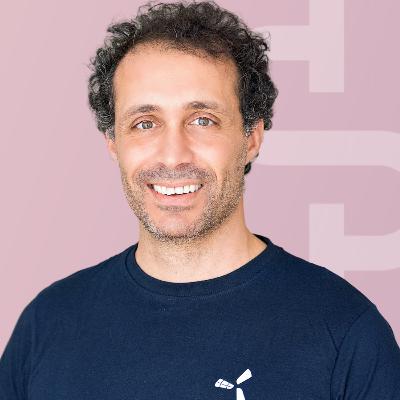
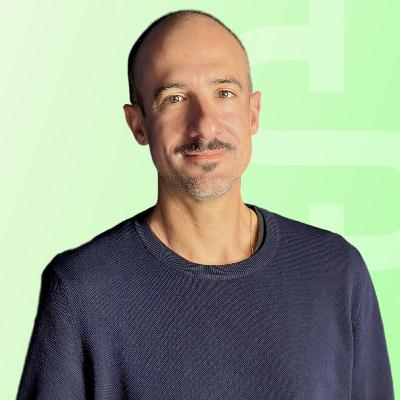
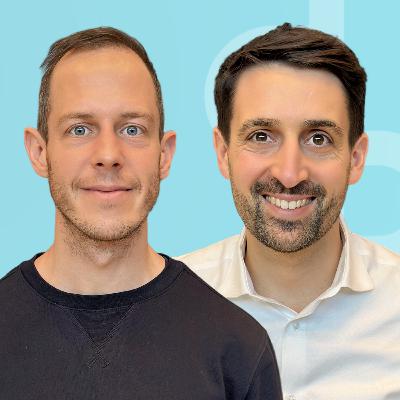
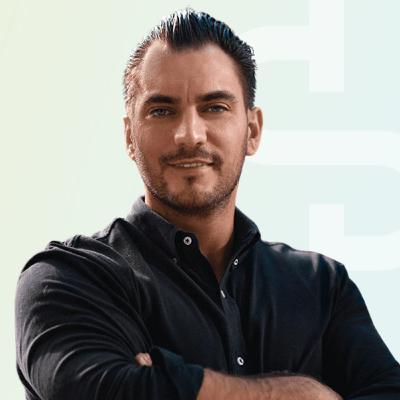
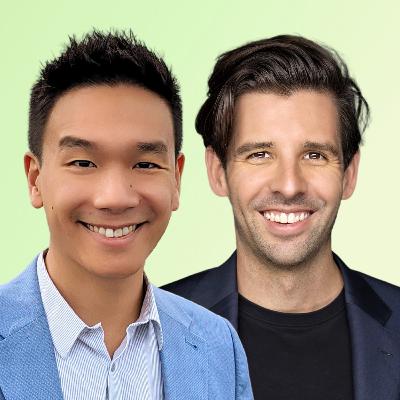
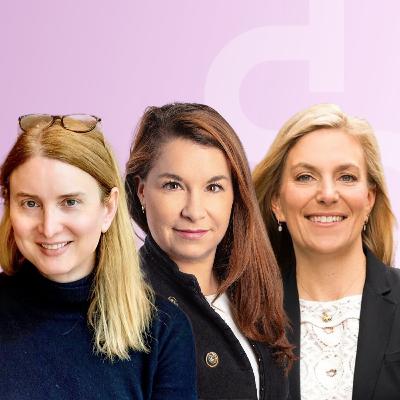
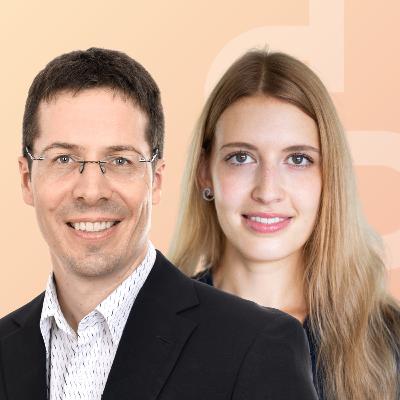

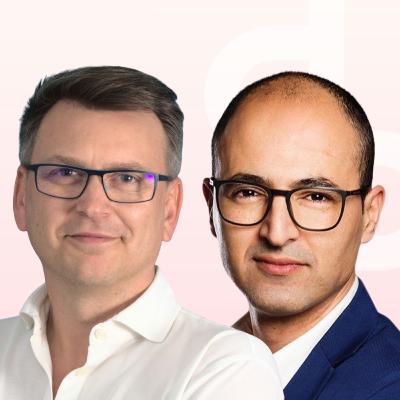

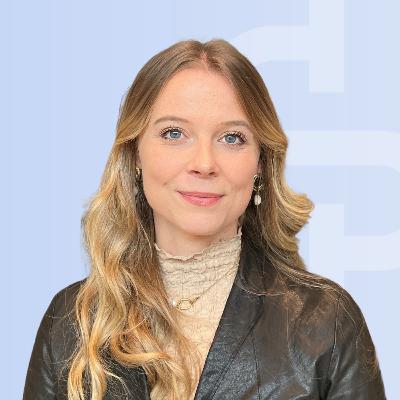
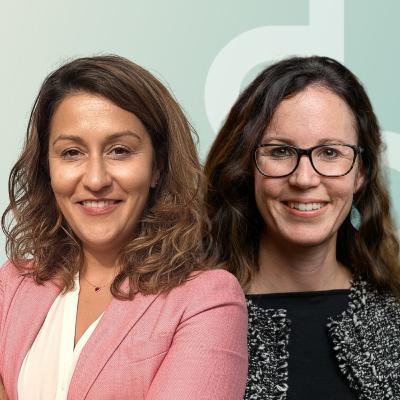
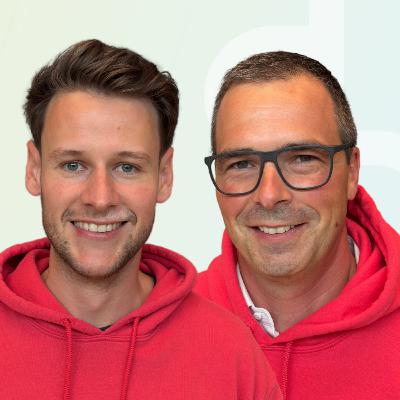

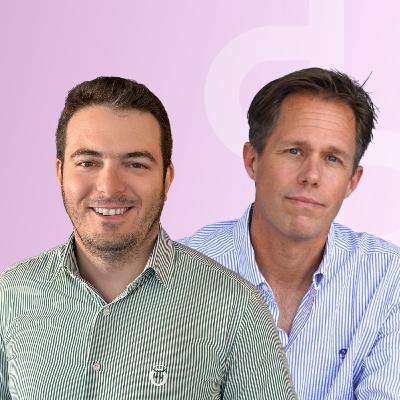
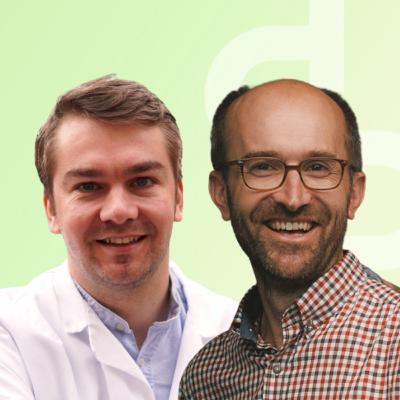



High-quality home clothes are an important factor for your comfort. The right home clothes can lift your mood, make you feel more confident and stock up on moral strength for new achievements. In addition, it should be as comfortable and high-quality as possible so that you can relax not only your soul, but also your body. By the way, one-size-fits-all warm sweater meets all these parameters and here https://tuktuk-kasten.lt/collections/siltukai you can always find the best assortment
Can you share the website of the company that this podcast is talking about?